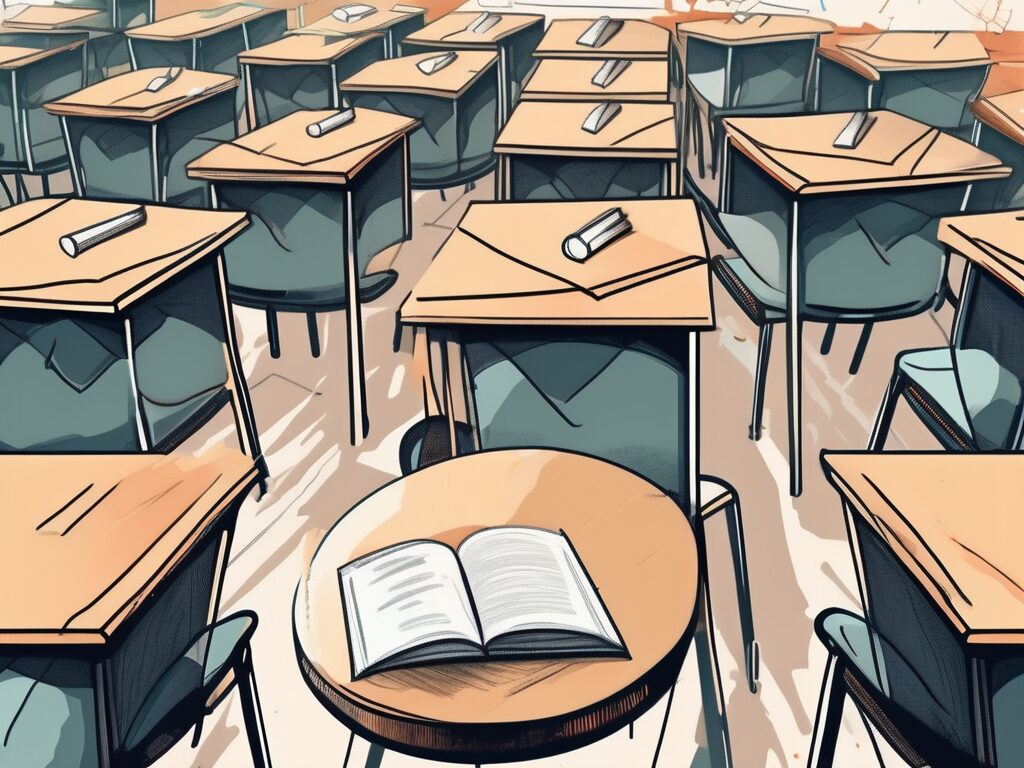Thailand, known as the ‘Land of Smiles’, is a country with a rich cultural heritage, stunning landscapes, and a rapidly developing economy. However, when it comes to higher education, particularly for teachers with a Master’s degree in Education, there are several issues that need to be addressed. In this blog post, we will delve into five significant problems that these teachers face in Thailand’s higher education system.
1. Quality of Education
The quality of education in Thailand, particularly at the higher level, has been a topic of concern for quite some time. Despite the country’s efforts to improve its education system, it still lags behind many of its Asian counterparts. For instance, in the QS World University Rankings 2021, no Thai university made it into the top 200. This is a clear indication of the challenges the country faces in providing quality education.
For teachers with a Master’s degree in Education, this issue is particularly significant. They are expected to deliver high-quality education, but the resources and support they receive often fall short. This can lead to a lack of motivation and job satisfaction, which in turn can impact the quality of education they provide.
2. Lack of Research and Innovation
Research and innovation are key components of a robust higher education system. However, in Thailand, there is a noticeable lack of emphasis on these areas. This is partly due to a lack of funding and partly due to a cultural mindset that prioritises rote learning over critical thinking and creativity.
For teachers with a Master’s degree in Education, this lack of research and innovation can be frustrating. They are trained to encourage critical thinking and creativity in their students, but the education system often does not support these teaching methods. This can lead to a disconnect between what teachers are trained to do and what they are actually able to do in the classroom.
3. Inadequate Funding
Another major issue in Thailand’s higher education system is the lack of adequate funding. While the government has increased education spending in recent years, it is still not enough to meet the needs of the country’s universities and colleges. This lack of funding can lead to a variety of problems, including outdated facilities, lack of resources, and low salaries for teachers.
For teachers with a Master’s degree in Education, this lack of funding can be particularly challenging. They often have to work with limited resources, which can make it difficult to provide a high-quality education for their students. Additionally, low salaries can lead to a lack of motivation and job satisfaction, further exacerbating the problem.
4. Language Barrier
English is the international language of academia, and proficiency in English is crucial for success in higher education. However, many Thai students struggle with English, which can hinder their academic progress. This is a significant issue in Thailand’s higher education system, and one that needs to be addressed.
For teachers with a Master’s degree in Education, this language barrier can be a major challenge. They are often tasked with teaching complex subjects in English, but their students may not have the necessary language skills to fully understand the material. This can make teaching and learning a frustrating experience for both parties.
5. Lack of International Recognition
Finally, one of the biggest challenges facing Thailand’s higher education system is the lack of international recognition. Despite the country’s efforts to improve its education system, it is still not widely recognised or respected on the international stage. This can make it difficult for Thai students to pursue further studies or find employment overseas.
For teachers with a Master’s degree in Education, this lack of international recognition can be disheartening. They work hard to provide a high-quality education for their students, but their efforts are often not recognised or valued outside of Thailand. This can lead to a lack of motivation and job satisfaction, further exacerbating the problems in the education system.
In conclusion, while Thailand has made strides in improving its higher education system, there are still many challenges that need to be addressed. For teachers with a Master’s degree in Education, these challenges can make their job difficult and frustrating. However, with the right support and resources, they can help to improve the quality of education in Thailand and pave the way for a brighter future for the country’s students.
Empower Your Teaching Career with iQTS
Understanding the complexities and challenges of Thailand’s higher education system, especially for teachers with a MA in Education, is crucial. If you’re looking to enhance your professional development, gain international recognition, and overcome the barriers outlined in this article, The IQTS at UWE has the solution. Our International Qualified Teacher Status (iQTS) Programme is designed to accelerate your career progression, connect you with a global network of professionals, and provide you with the insights needed to adapt to various education systems. Embrace the opportunity to balance your career advancement with your current commitments through our flexible online study options. Make Your Next Step towards a fulfilling international teaching career with iQTS.

